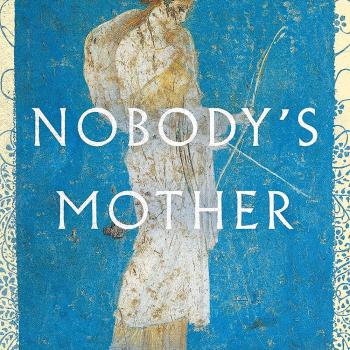Before his passing, John McDermott was the world’s expert in philosophical pragmatism. He knew the works of William James and John Dewey as well as or better than he knew anything else in this world. McDermott had a reputation around the department. Tough. No nonsense. Sharp tongue. Astute knowledge in about everything. And he was no fan of Christianity.

He was one of my professors during my time at Texas A&M, where I earned a master’s degree in philosophy. I took his course as a first-year graduate student. It wasn’t long before I learned about this legendary personality. I was told he was an atheist, though I’m not sure whether that was accurate. As a young zealous Christian, I mentally lumped anyone who was “anti-Christianity” into the “atheist” category. I now had a mission. In McDermott’s class, I would show him the folly of his ways and philosophy by demonstrating the superiority of a biblical perspective.
“You are a Christian, right?”
Each week, we submitted papers interacting with the assigned readings, followed by class discussions. I took these opportunities to refute the materialistic, non-Christian worldview of the authors we studied. A third of the way through the semester, McDermott had enough.
At the break, he rasped, “Come here. Follow me.” I obliged, trailing him until we left the building. I turned and he wasted no time. “You are a Christian, right?” he asked. Now I knew why he called me outside. I was successful. I had shown him how well a Christian mind could engage God-ignoring philosophers. “Yes,” I said, trying not to puff out my chest.
“Then shouldn’t you be humble?!” He continued, “Why don’t you first understand what you are reading and then criticize it?”
This emotional punch in the gut left me without breath to reply. It jarred my ears open to hear his admonition. He did not berate me. Rather, he was acting like a mentor, pounding into my head the literal meaning of “philosophy,” i.e., “the love of wisdom.”
I’ve yet to recover from that conversation outside of Heldenfels Hall. From that point, I began to listen and discover that we can gain insight from anyone, even if they are atheists or heretics. I learned the value of taking another person’s perspective.
Humility in Perspective Taking
With time, I found out that humility does not mean we must skeptically give up our convictions. Nor does it mean stubbornly holding onto long-held teachings in the name of faith. Instead, humility entails the willingness to examine afresh our beliefs, even traditional ones.
Having intellectual humility means we will consider others’ ideas with generosity, being quick not only to find common ground. We also want to augment arguments that make sound points yet merely need better support. After all, we should be interested in truth, not convincing others that we are right when we are not.
Crossing cultures is a never-ending challenge to one’s humility. While learning a second language, a person with a Ph.D. is reduced to sounding like a 4-year-old when shopping for vegetables. The brain tends to judge the unfamiliar as “bad” or “wrong.” With a little experience and even more humility, a person will discover who really is wrong.
Instead of dubbing one cultural perspective “good” or “right” and another negative, the truth is far more uncomfortable and ambiguous than we’d like to admit. For missionaries, the situation is complicated by the fact that the church has long melded Christianity with Western culture. Specific historical questions and themes have shaped systematic theologies. They lead us to prioritize certain motifs and problems over others. A traditional, Western lens can often narrow our perspective such that we overlook or underemphasize aspects of the Bible.
Consequently, interpreters easily become suspicious of whatever is not traditional. They can be quicker to criticize than to consider what they might learn from a fresh perspective. A half-truth is half-wrong. A 90% truth is 10% wrong. A series of ideas that are 100% true individually can misrepresent the truth if shared in an incoherent manner.
If we love the truth, should we be content with settling for part of the truth? If we settle for truth, we compromise the gospel. Are we aware of our tendency to defend our ideas before listening with humility to contrary views? If so, what are we practically going to do?
So what will you do about it?
Knowing we all read the Bible through a cultural lens, should we not become more critical of our assumptions? Admitting we have blind spots is not the same thing as actively seeking to take a fresh perspective. We need action steps.
None of us reads the Bible with an ancient Mediterranean worldview. At best, we approximate in our minds the perspective of the biblical writers. As I argue in the last chapter of One Gospel for All Nations,
I suggest that we can actually use contemporary cultures as a means of interpreting the ancient biblical text. Perhaps this could be called “reaching back by reaching out.” It is important that people learn about and even internalize ways of thinking that are typical in other parts of the world. In so doing, they gain two things: (1) a measure of objectivity, and (2) a broader understanding about what it means to be human. As a result, we are forced to examine and question many of our assumptions. It is possible to gain fresh insights about the biblical text as our understanding of other human cultures expands.
Although no contemporary culture is identical to the ancient cultures depicted in the Bible, there are certainly differing degrees of overlap. In some respect, East Asian cultures today resemble the Ancient Near East better than would those of Chicago and a Los Angeles suburb. In other instances, one may hear the echoes of Scripture most clearly when reading from a traditional African perspective. Those same themes may be less pronounced to someone in London or Paris. Inasmuch as similarities exist between modern and ancient cultures, contemporary readers from different parts of the world will have certain advantages and disadvantages when interpreting the Bible. Of course, these advantages are not absolute. They are relative to the topic and theme. Human cultures complement one another.
I have sought to know what ideas have shaped various world cultures. I’ve tried to grasp the worldviews held by people different than me. We should especially lend an ear to those not often heard. With respect to theology, we’ve not always considered the importance of non-Western questions and ideas.
For all these reasons, I wrote Reading Romans with Eastern Eyes. I encourage people to reflect on Scripture using a new ancient cultural lens. (Click here for a short video introduction).
For the sake of humility and biblical faithfulness, should we not listen and so understand the perspective of others? Are we not Christians?












